|
Now that the June 15th deadline has passed and college coaches can reach out to high school athletes, the pressure felt by athletes is palpable. When I work with athletes, we collaboratively establish a mental game plan to assist them in preparation for a diverse variety of challenges ahead.
For example, when a student athlete learns to focus on small, but impactful goals, I notice a shift in their mindset. As the internal pressure for perfection decreases, the motivation to instead achieve excellence increases. Instead of focusing on the outcome of performance, we work on developing intentional awareness to areas of the game they want to improve. I believe sports are played with the body, but are won in the mind. And if an athlete concentrates primarily on impressing others through their performance, they are creating extra-tension which clouds purpose, passion and can lead to burnout. If you or your student athlete is feeling overrun with pressure, let's get a game plan together. Developing psychological flexibility as a top performing athlete requires goal setting. With that said, my athletes are taught very early on to learn and develop the "3's for MVP's" when goal setting. What are the 3's for MVP's you ask? Keep reading to find out!
I was recently working with a young athlete whose obsessive and compulsive thoughts from their OCD was leading them to over-training and as a result of over-training, injury. The person's passion for their specific sport and the goal of making an NCAA Division 1 team lead them to develop the explicit thoughts of "something is not-just-right", which subsequently led to the development of behaviors on the court reflecting the "not-just-right" thoughts. This athlete was getting stuck in individual workouts for hours that lead to significant feelings of sadness, anxiety and an increase risk of injury. When I began working with this goal-driven, and highly motivated individual, we wanted to focus on setting achievable goals they can work on in between our sessions. This is where I introduced them to the "3's for MVP's": The 3's for MVP's: 1. Emotional Goals - how you feel 2. Outcome Goals - the result you get 3. Behavioral Goals - what you do Once I introduced the 3's for MVP's, I pointed out the most effective practice focuses on goal #3. Using this model, the client began to shift the training routine to intentionally planning for X number of repetitions of multiple skills, rather than X number of successes overall. Their workouts have become more diverse, robust, flexible, and less time-consuming. And the ultimate result? The client's mood AND athletic performance have improved considerably! Here are some of the basic things to keep in mind about Emotional Agility (EA):
You can become your own performance coach if you would just listen to what your mind and body are trying to tell you. You have the power already inside of you. Now go access it!
I am sharing this video clip for the athlete in the back who may just miss this important message.
I firmly believe that each time an athlete speaks up about mental health, they are helping to lay a foundation, brick by brick for the future of mental and physical wellness in sports. And just in this moment, two successful athletes came together, showing the rest of the world jut how powerful vulnerability and openness about mental health can be. This takes good sportsmanship to an entirely new level and I am hopeful for the future of sports and mental health. Dr. Meghan Braun is a professional athlete, lacrosse coach, and physical therapist helping athletes and people of all ages in Jacksonville, Florida. I loved sitting down with Meghan and having this brief talk on mental health, athletic performance, and reacting versus responding in sports. I am so grateful for professionals like Meghan who are out there helping others achieve and succeed through physical health and wellness. Check out her website when you have a chance and enjoy the video!
https://www.bodymechpt.com/about-dr-braun 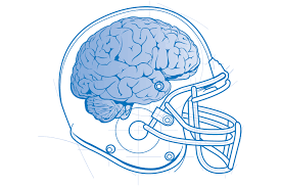 There is a common belief that the only way to improve performance as an athlete is to work harder than the competition. Unfortunately, most athletes will learn the hard way that hard work alone often isn't enough. The high performing athletes that I work with know that the physical side of their performance is just ONE piece of the puzzle. Mental performance is just as important. And as a mental performance specialist, working with my clients' and athletes' mental skills is a critical ingredient in the recipe used to create successful outcomes. I regularly remind my clients' to focus on mastering his or her mindset to unlock true potential. Mindset is one of the most important yet most frequently overlooked aspects of performance. But what exactly does mindset mean? Mindset is another way to describe perspective. It is how you perceive your self-image; how you perceive the present moment; and how you view the world. A quote by Charles R. Swindoll describes mindset perfectly: "I am convinced that life is 10% what happens to me and 90% how I react to it. And so it is with you...we are in charge of our attitudes". When we are faced with challenges, our mindset will determine how we will respond. In my role as a mental performance specialist, I help my clients' develop strategies to redirect their focus when challenges arise. I work with my athletes' on developing an elite mindset so that they are able to win the game inside their head and ultimately achieve peak performance. Now before you go ahead and start searching the internet for motivational quotes on mindset, I want to stress the importance of recognizing that mental conditioning is a skill that is developed and strengthened over time with consistent, intentional practice. You have to be in control of your mindset before you can control your performance.
Good morning! I want to share a sample of a reframe that is often used in sessions with my clients. Rewarding an outcome versus rewarding the efforts that go into achieving an outcome are similar yet uniquely different perspectives that can yield entirely different outcomes for mental health and mindset. What is the common denominator? Whatever we reward, will continue.
As a mental health expert specializing in working with elite and professional athletes, playing a sport won't "solve" or "cure" issues related to mental health.
What I generally observe is a disconnect occurring between the mind and body, affecting performance, and ultimately affecting emotional safety and health. This cycle circulates in one big loop, or what I love to phrase as a "pattern". At the same time, it is also important to recognize that an athlete is still a human being under the helmet or uniform he or she wears. Just because a person can compartmentalize and carry pain well does not mean it is not heavy for that person. Athletes face various challenges in their career on and off the sports field. I feel that a greater knowledge of the conceptualization of mindfulness and its impact on psychological skills could truly shift the way athletes maintain and even improve performance before, during, and after game time. In the unforgiving environment of professional sports, dysfunctional thinking can impact and interfere with performance.
When working with professional athletes, I love collaborating with my clients to develop specific strategies to address dysfunctional thinking patterns and other challenges. Coping strategies offer athletes additional psychological opportunities to enhance his or her chances of performing at his or her highest level under very demanding, stressful, and sometimes even hostile conditions. Before going any further in this blog post, I believe it is important to give credit to where credit it is due. Mindfulness is popular and used generously among mental health professionals as treatment for a variety of mental health disorders, including most notably, anxiety and trauma-related disorders. My two personal favorite types of Mindfulness interventions are Mindfulness Based- Cognitive Behavioral Therapy, and Dr. Jon Kabat-Zinn’s Mindfulness-Based Stress Reduction (MBSR). I was first introduced to Dr. Kabat-Zinn and MBSR in graduate school. Although I attended Stony Brook University, I was offered the opportunity to enroll in a research-based elective, dually offered by Columbia University and it's Advanced Consortium on "Evidence Based Practices", and in reflection, I am so happy I accepted the opportunity! High performance athletes can experience a variety of performance-inhibiting stressors. Most frequently, my clients come to session and process topics that induce stress such as: unrealistic expectations because of perfectionism, competition anxiety, anger and other negative emotions, fear of failure, perceived pressure, and avoidance behavior. Additionally, other factors that can negatively impact performance include: having an avoidant coping style, interpersonal problems, or life-balance difficulties. However, similar to the most successful surgeons, athletes have the distinct superpower to transform stressors automatically into fuel in order to meet the specific demands of the game. In other words, athletes use this automatic process, similar to autopilot as a way to use stress as energy, resulting in enhanced performance. Most frequently this superpower is an alternative label for more well-known defense mechanisms such as "compartmentalization" and "sublimation". So if athletes have metaphorical black belts in compartmentalizing and channeling emotional and psychological stress into elite performance fuel, why are we focusing on Mindfulness? Mindfulness focuses on changing the function, not the form of behavior, emotion, thinking, or how we experience things. Mindfulness aims to change the relationship of thoughts and emotions. Mindfulness has no desire to change the content of those thoughts and emotions. How can this be integrated into elite sports? Perhaps breathing exercises can be introduced in a non-sport setting. Athletes can integrate mindfulness exercises directly during a big play when they focus on the breath or letting go of thoughts of pain or discomfort. One of my favorite techniques is using a body scan exercise. Again, thinking of how this can be woven into the tapestry of sport, a body scan exercise can be easily completed during the cool-down at the end of practice or training. I don’t want to suggest that using mindfulness will automatically lead to major shifts in performance overnight. But down the road with further inclusion of mental health support in professional sports, I think we will start to see a happier and overall healthier group of professional athletes and role models. What are the Yips?The yips are technically defined as sudden motor skill failure. A perfectly executed pitch is necessary to strike out the opponent at bat; a football kicked in between the goal posts can be the game winning goal; or a single short putt is necessary to win the tournament. Suddenly the athlete's hands or feet cramp up, and the shot or pitch goes wide. There is no clear explanation as to why pro athletes become inflicted by the yips, but studies suggest the yips are due to abnormalities in the electrochemical dialogue that occurs between neurotransmitters in the brain.
From a mental health perspective, overthinking appears to intensify the yips. In other words, concentrating too much may overshadow other important areas in the brain activated during sport, such as balance and timing. From my experience, athletes have a unique responsibility to compartmentalize on and off the field. With this in mind, sometimes the mental real estate being occupied and compartmentalized become overwhelmed. Thoughts, stressors, traumas, and underlying mental health issues such as anxiety, obsessive compulsive disorder, and post-traumatic stress disorder begin colluding with the areas of the brain that are focused specifically on sport performance. In my professional opinion, this is where I have found to be the sweet spot where athletes will get in his or her own way of performing a skill. From my experience working with many athletes who have struggled with the yips, it is my professional opinion that athletes are not all doomed the first time they feel like they are experiencing this level of sport anxiety. I encourage coaches, athletes, and sports personnel alike to talk about the yips and mental health. Working with a mental health professional, or coach for the brain and body can greatly help athletes address the underlying issues causing the yips so he or she can get back in the game. Signs and symptoms of the Yips: -Physically responding in sport with jerking movements or freezing on a skill that was previously easy to execute -Muscles feel tight or sore, interfering with ability to complete a skill -Anxiety, tension, and feeling overwhelmed about completing a skill or task -Performance anxiety about what others will think -Repetitive and intrusive thoughts about the outcome of a skill and/or incompletion Most frequently, the first line of defense is to search for quick fixes, promising lasting results with high rate of failure and relapse. |
AuthorAmy Pope-Latham, LCSW is a board certified mental health professional in Ponte Vedra Beach, FL. Archives
December 2022
Categories
All
|

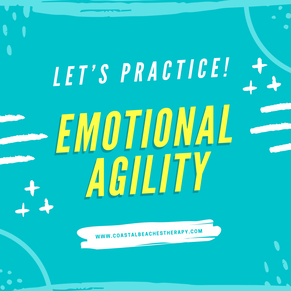
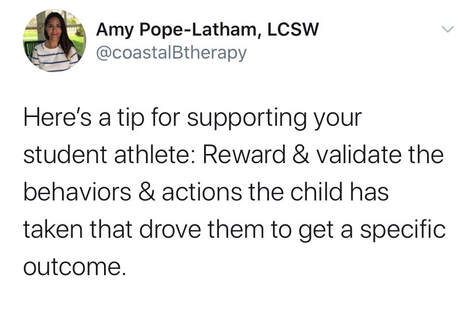
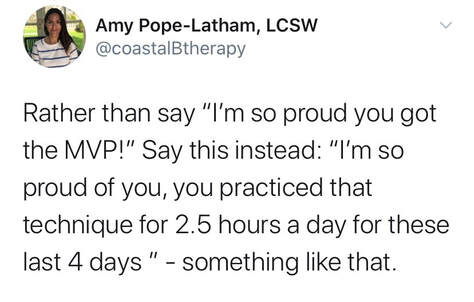
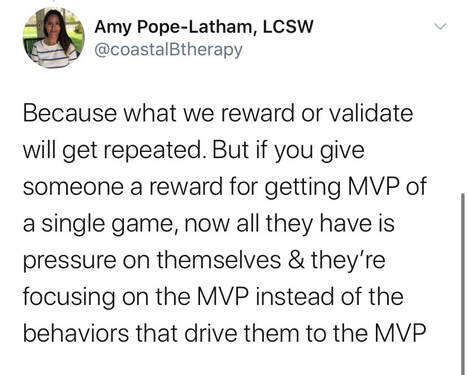

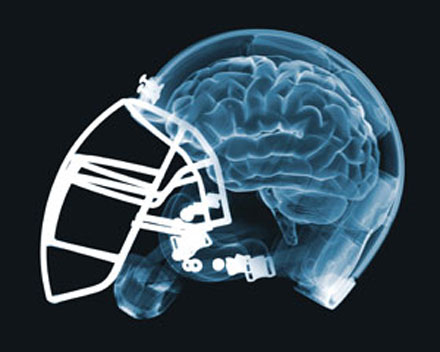
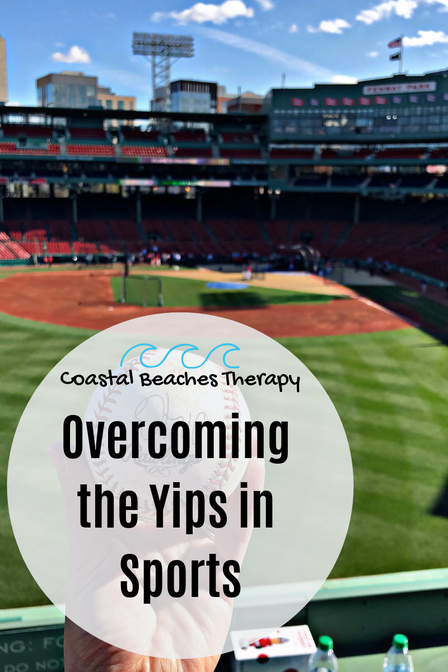
 RSS Feed
RSS Feed